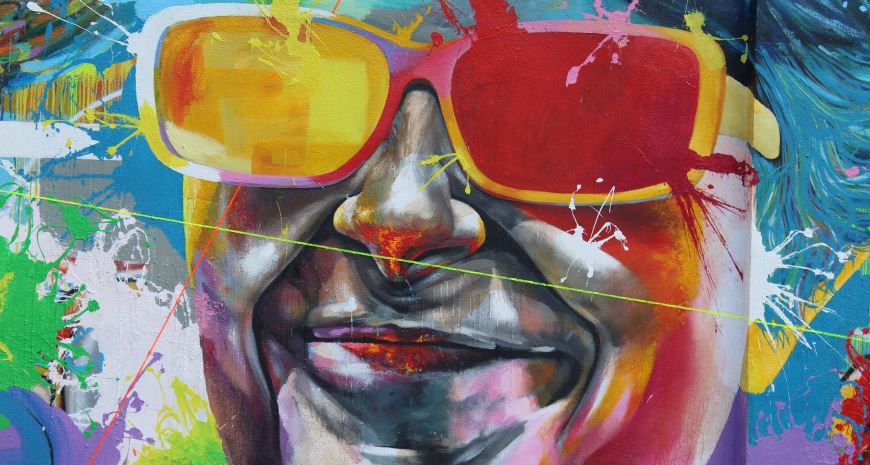In France, at the beginning of the 2020s, approximately 25% of French people said that they have considered buying a piece of fine art to decorate their home. Over the past few years many companies have started leasing works of art. Read on to find out more about this exciting way of enjoying art while making a smart financial investment.
Buying fine art: How to indulge yourself while making a smart investment
The art market and taxation
In our current state of great economic uncertainty and instability, investing in art appears to be a safe haven for individuals and companies alike. Buying a work of art is an excellent way to protect yourself from inflation – a problem that is currently undermining many industries and financial assets.
Tax on assets
It is important to know that when you purchase of a work of art in France it is not subject to the Impôt sur la Fortune Immobilière IFI (tax on assets). This is a new tax introduced by Emmanuel Macron in 2018 that replaced the wealth tax or Impot de Solidarité. The new IFI tax reformed the terms for taxing works of art owned by individuals, completely exempting them from taxation.
It is also possible to combine business with pleasure by bringing altruism into this money saving equation. For example, in France, you can greatly reduce your taxes by donating works of art to a museum or an organization. 66% of the value of the donated item can be deducted from your income tax, within the limit of 20% of your taxable income.
Reselling fine art and taxation
If, however, you decide to resell a piece of fine art, the capital gain is taxed. In this case the taxpayer is able to choose between the following two options:
- Taxation at a flat rate on the sales price at a rate of 6%
- Taxation according to the law for capital gains. Following the second year of ownership, the capital gain tax is reduced 5% per year of ownership. The artwork will therefore be completely exempt from taxation if it is owned for more than 22 years.
Proof of the length of ownership is required in order for this option to be considered: invoice, purchase certificate or proof of inheritance.
Conditions for exemption
In order to qualify for these different tax exemption policies, you must bring the above-mentioned proof of purchase or inheritance. Make sure that you also have a certificate of authenticity for the work of art that includes the following information:
- Proof of the work of art’s provenance
- The purchase price
- The date of purchase
It is very important that you research the art dealer you intend to make a purchase with - only buy fine art from authorized dealers or places that are known for their reliability. Artalistic is considered to be one of the world’s leading online platforms for selling fine art.
Return on investment
In addition to owning an object of great aesthetic value, buying fine art is a sound investment that will most likely increase in value over time. Depending on the piece’s quality and the artist who created it, its price will significantly increase in value if you keep it for at least 5 years. Leasing works of fine art is a fairly new concept that is also proving to be an effective way to make a sound return on your investment.
For professionals and companies
A professional’s guide to buying fine art
When buying fine art in France, a professional is allowed to deduct 20% of the purchase price over a period of 5 years, within the limit of 0.5% of their company’s annual turnover.
Buying fine art and tax exemption: criteria that must be met
The following list includes the different criteria that must be met in order to qualify for tax benefits if you are a French professional interested in buying fine art:
- Purchase works of art created by an artist that is still alive at the time of purchase
- The work of art must be on display in a public place for a minimum of 5 years. The piece must be visible to visitors, employees and suppliers.
- Record the purchase on the company's balance sheet: they must be considered a fixed asset in the company's accounts.
Leasing fine art has its own tax advantages
Many company directors and stakeholders do not know about leasing fine art. This is a fairly new concept to hit the art world that consists of renting a piece of fine art instead of buying it.
Leasing fine art is mainly aimed at the business world. It is used to embellish a company’s premises while reducing its corporate tax.
These tax benefits do not apply to individual entrepreneurs subject to declaring non-commercial profits (déclaration des bénéfices non commerciaux - BNC).
The following lists situations in which one may benefit from the tax benefits that leasing fine art may entail:
- Companies subject to corporate income tax (l’impôt sur les sociétés)
- Companies subject to the tax regime of investment corporations (régime fiscal des sociétés de personnes)
If you have further questions about leasing fine art, feel free to contact Artalistic. Our team of expert individuals are ready to answer your questions and guide you through the process.
Buying fine art allows you to embellish your surroundings while enjoying tax exemptions. Feel free to browse our carefully curated collection of paintings, sculptures, drawings, photographs and limited editions prints by renowned and emerging artists.
 English
English Français
Français


You must be logged in to post a comment.
Click here to log in